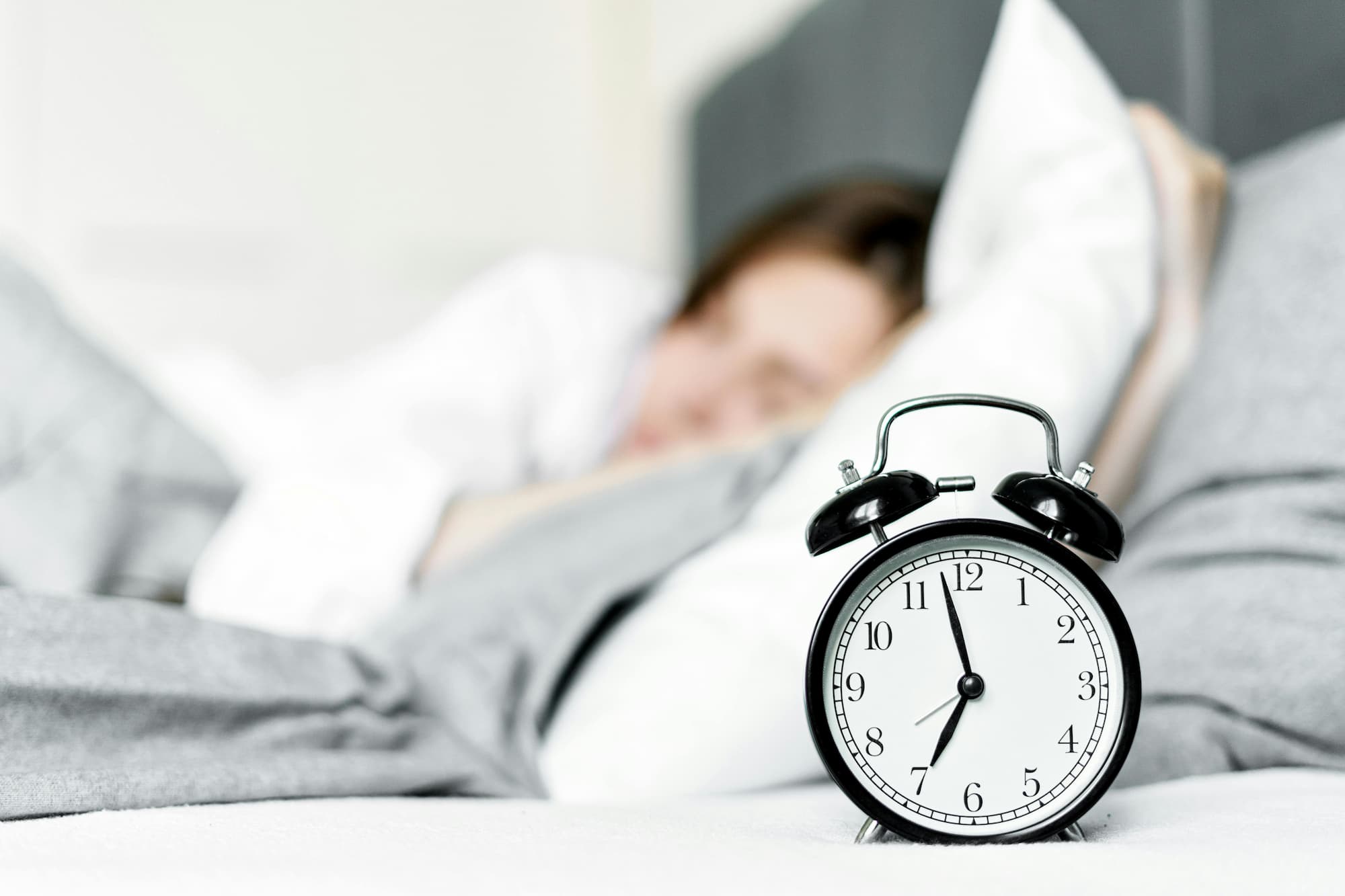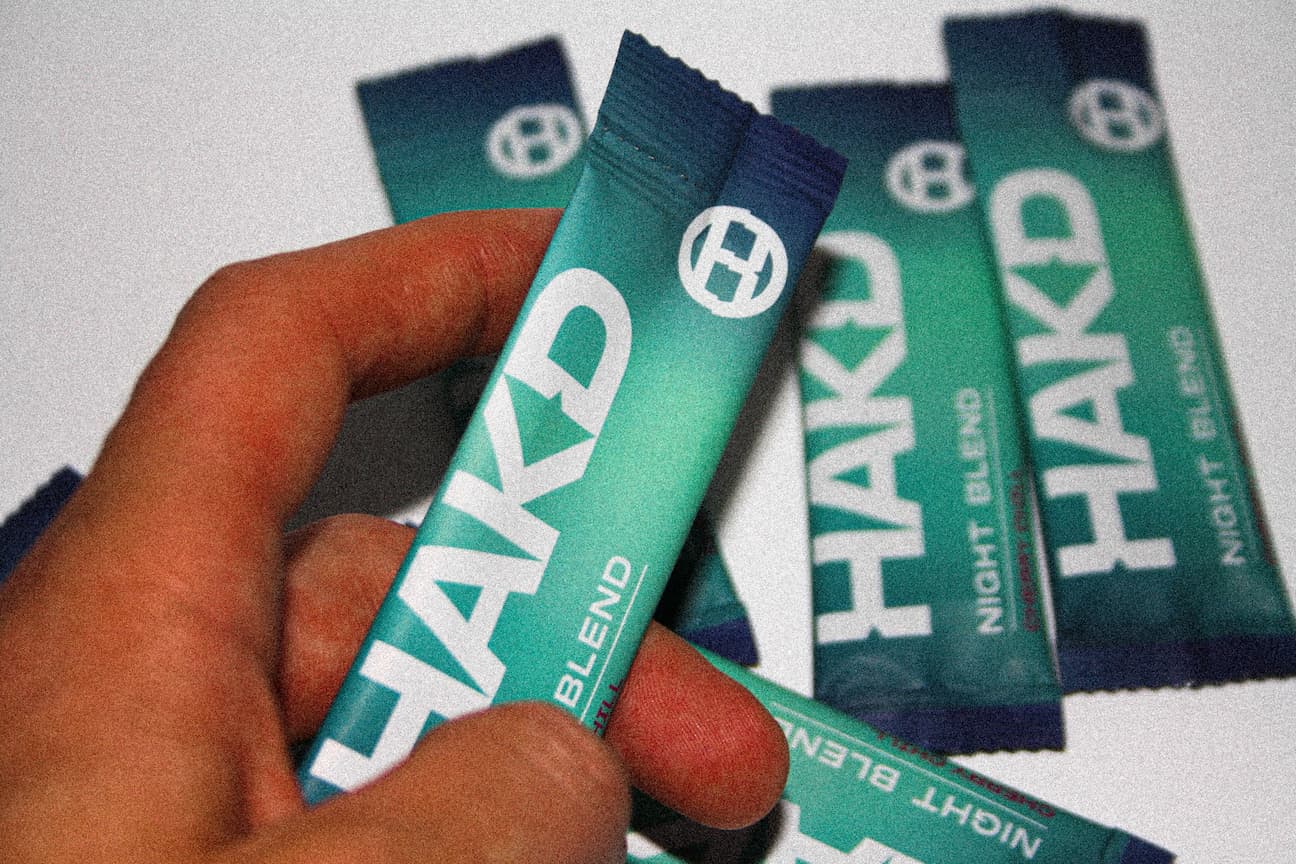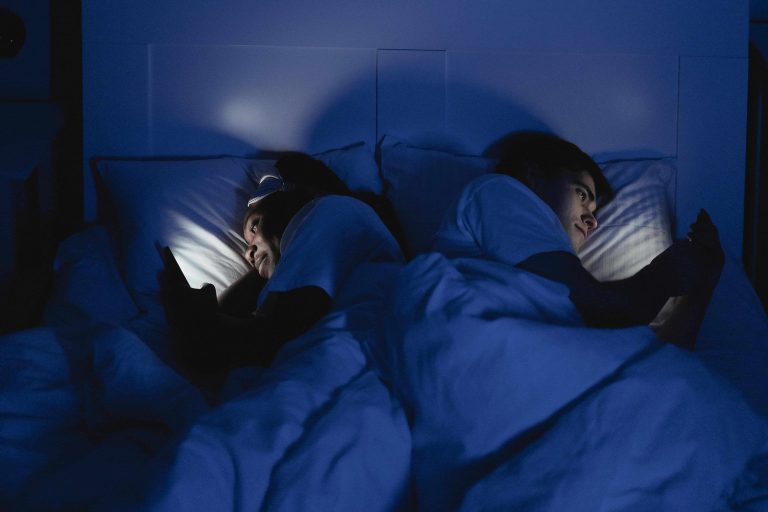How much sleep do you need? The answer depends on age, lifestyle, and individual biology – and the science may surprise you…
A good night’s sleep is one of the cornerstones of our health, yet the popular “8 hours” rule might not be a universal truth. Research into how much sleep you need shows that the optimal amount varies by age, lifestyle, and individual biology (1)(6).
We’re here to break down the science behind sleep, what experts recommend, and how your needs change across your lifetime.

The Biology Behind Sleep: Why Do We Need It?
Sleep isn’t simply about switching off for the night. It’s a highly active, carefully orchestrated biological process where your body and brain carry out essential maintenance, often more intensely than when you’re awake (4)(5).
During different sleep stages, critical processes occur:
- NREM Sleep (Non-REM): Deep slow-wave sleep is critical for tissue repair, bolstering the immune system(2), and consolidating memories into long-term storage (5)(8).
- REM Sleep (Rapid Eye Movement): This stage sharpens emotional regulation, boosts creativity, and helps your brain process and integrate new learning.
And the stakes are high. EEG studies show that a lack of adequate slow-wave or REM sleep doesn’t just leave you feeling foggy – it impairs both short- and long-term memory and elevates stress hormones (8).

Meanwhile, a major 2022 review revealed that people who consistently sleep less than six hours a night face a 20% higher risk of cardiovascular events compared to those clocking 7-8 hours (3).
Simply put: sleep isn’t a passive state – it’s your body’s nightly tune-up for virtually every system, from your heart and hormones to your brain’s ability to learn, adapt, and stay resilient (4)(5).
How Much Sleep Do You Need by Age?
While the “8-hour rule” is widely cited, it’s actually a broad average. The National Sleep Foundation and CDC recommend that most adults aim for 7-9 hours per night, but this is a range, not a hard rule (6).
Sleep requirements change as we grow. Here’s a breakdown based on consolidated data from the National Sleep Foundation and American Academy of Sleep Medicine.
Age Group | Recommended Sleep |
Newborns (0-3 months) | 14-17 hours |
Infants (4-11 months) | 12-15 hours |
Toddlers (1-2 years) | 11-14 hours |
Preschoolers (3-5) | 10-13 hours |
School-age (6-13) | 9-11 hours |
Teenagers (14-17) | 8-10 hours |
Young adults (18-25) | 7-9 hours |
Adults (26-64) | 7-9 hours |
Older adults (65+) | 7-8 hours |
Does Everyone Need the Same Amount of Sleep?
While age-based guidelines provide a useful starting point, sleep needs can vary significantly between individuals. Genetics, activity levels, stress, and overall health all influence how much sleep your body requires to function optimally.
Some people feel fully rested on the lower end of the recommended range, while others consistently need more sleep to maintain focus, mood, and physical performance. Importantly, there is little evidence to support the idea that most people can “train” themselves to thrive on less sleep long-term.
The most reliable indicator of whether you’re getting enough sleep isn’t the number on the clock – it’s how you feel during the day. Consistent energy levels, mental clarity, and stable mood are strong signs your sleep duration is meeting your individual needs.
Why Do Sleep Patterns Change With Age?
Young Adults (18-25)
While 7-9 hours is recommended, lifestyle factors mean roughly 35-40% get under 7 hours (1). Late nights, screen time, and academic or work demands all play a part.
Adults (26-64)
This group often sleeps the least. A global study revealed that adults average just 6 hours and 42 minutes a night. Work stress, parenting, and 24/7 digital connectivity contribute to widespread short sleep (7).
Older Adults (65+)
Older people may still need about 7-8 hours, but often struggle with more fragmented, lighter sleep. This can be due to changes in circadian rhythm, medical conditions, or medication side effects (1).
Tailor Your Sleep to Your Needs
Most adults thrive on 7-9 hours of sleep per night, but it’s important to remember that optimal sleep isn’t one-size-fits-all.
If you often wake up groggy, rely on caffeine to get through the day, or feel drowsy in quiet moments, it’s a clear sign your body needs more (5).

Practical ways to optimise your sleep:
- Keep a steady schedule: Go to bed and wake up at the same time every day to train your internal clock.
- Make your bedroom a sleep haven: Cool, dark, quiet spaces help you drift off faster.
- Wind down properly: Try reading, light stretching, or deep breathing instead of screens.
- Watch caffeine and alcohol: Both can throw off your sleep cycle if consumed too close to bedtime.
- Natural Sleep Support: Give your body the extra help it needs with natural supplementation. Discover how HAKD Health’s Night Blend can enhance your sleep quality.
So, how much sleep do you need? Ultimately, the best approach is to listen to your body. Pay attention to how you feel on different amounts of sleep and adjust your habits to support the quality and quantity you need to truly function at your best.
References:
- (1) Hirshkowitz, M., Whiton, K., Albert, S.M., Alessi, C., Bruni, O., DonCarlos, L., Hazen, N., Herman, J., Katz, E.S., Kheirandish-Gozal, L. and Neubauer, D.N., (2015). National Sleep Foundation’s sleep time duration recommendations: methodology and results summary. Sleep Health, 1(1), pp.40-43. https://doi.org/10.1016/j.sleh.2014.12.010
- (2) Besedovsky, L., Lange, T. and Born, J., (2012). Sleep and immune function. Pflugers Archiv – European Journal of Physiology, 463(1), pp.121-137. https://doi.org/10.1007/s00424-011-1044-
- (3) Wang, Y., Mei, H., Jiang, Y.R., Sun, W.Q., Song, Y.J., Liu, S.J. and Jiang, F., (2020). Long sleep duration and cardiovascular disease: a systematic review and meta-analysis of prospective cohort studies. Journal of Clinical Sleep Medicine, 16(2), pp.301-309. https://doi.org/10.5664/jcsm.8180
- (4) Rasch, B. and Born, J., (2013). About sleep’s role in memory. Physiological Reviews, 93(2), pp.681-766. https://doi.org/10.1152/physrev.00032.2012
- (5) Walker, M.P. and Stickgold, R., (2006). Sleep, memory, and plasticity. Annual Review of Psychology, 57, pp.139-166. https://doi.org/10.1146/annurev.psych.56.091103.070307
- (6) Hirshkowitz, M., Whiton, K., Albert, S.M., Alessi, C., Bruni, O., DonCarlos, L., Hazen, N., Herman, J., Katz, E.S., Kheirandish-Gozal, L. and Neubauer, D.N., (2015). National Sleep Foundation’s sleep time duration recommendations: methodology and results summary. Sleep Health, 1(1), pp.40-43. https://doi.org/10.1016/j.sleh.2014.12.010
- (7) Cappuccio, F.P., Cooper, D., D’Elia, L., Strazzullo, P. and Miller, M.A., (2011). Sleep duration predicts cardiovascular outcomes: a systematic review and meta-analysis of prospective studies. European Heart Journal, 32(12), pp.1484-1492. https://doi.org/10.1093/eurheartj/ehr007
- (8) Diekelmann, S. and Born, J., (2010). The memory function of sleep. Nature Reviews Neuroscience, 11(2), pp.114-126. https://doi.org/10.1038/nrn2762



